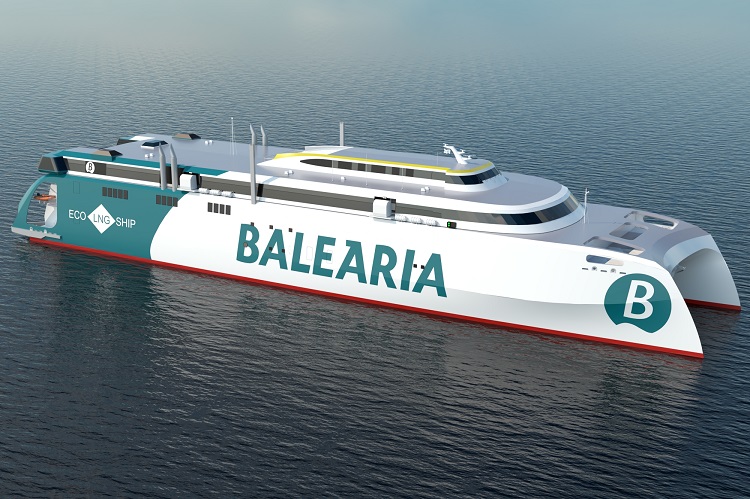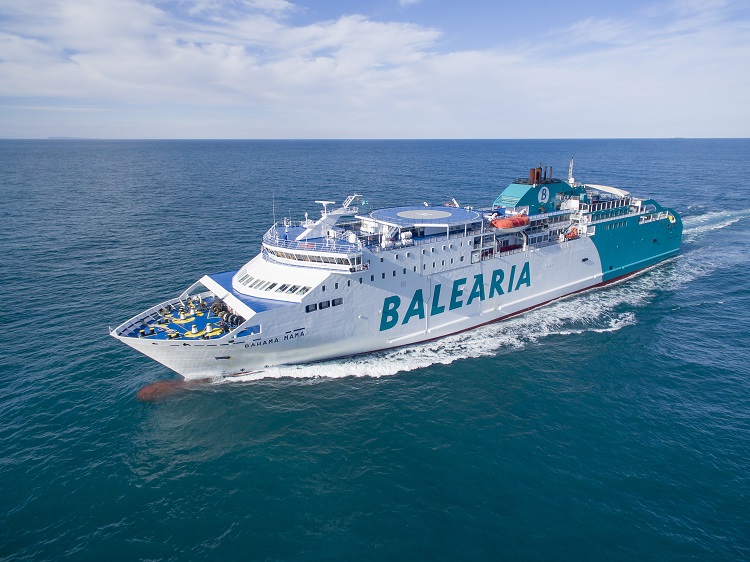Adolfo Utor Reveals Baleària's Plans for Expansion
Adolfo Utor is the President and main shareholder of Baleària, Spain’s leading shipping company in the transport of passengers and cargo between the Balearic Islands and the Iberian Peninsula.
Baleària are one of the largest operators in the Strait of Gibraltar connecting Ceuta, Melilla and the Canary Islands with the ports of the Peninsula. Internationally, Baleària have an ambitious expansion plan, with operations extending to Morocco, Algeria, U.S. and the Caribbean.
Utor talks about the company's distinctive culture and his plans for further success:
What are the key factors of your success?
This is, without a doubt, our own and distinct culture. A culture based on innovation, on people, on values and on the continuous commitment to adapt to change. We consider ourselves dynamic, responsible with corporate citizenship, with obligations and rights that defend inclusion, the environment and sustainable growth. We know and work so that all our efforts respond harmoniously to our stakeholders, customers, workers, suppliers, shareholders and the society of which we are a part.
Our success is a result of our own convictions, in the clarity with which we approach our transcendent mission each day and our ability to adapt to change by being innovative.
What are your main objectives for Baleària?
Baleària has two main objectives; firstly, respond to our stakeholders’ expectations by ensuring competitiveness; secondly, to fulfill our transcendent mission in a sustainable way: unite territories by sea and facilitate free trade, the mobility of people, goods, knowledge and culture, and thereby contribute to the progress and welfare of citizens of the territories in which we operate.
Therefore, our objectives are to deploy a fleet that is increasingly eco-efficient and to provide excellent services to our customers, generating resources to continue doing what we like the most, building ships and opening new lines.
We are one of the pioneering shipping companies worldwide in the use of LNG applied to maritime transport. We have been promoting it for over six years now. We are currently building two ferries powered by this clean energy with an investment in excess of €200M, engine re-fitting six ferries in our fleet and commissioning the first gas generator on board a passenger ferry. In addition, we have strategic alliances with other companies that also work in this area, namely Naturgy, Wärtsilä and Rolls-Royce.
It is one of Baleària’s strategic goals to grow the group’s business by focusing on and expanding in foreign markets. Passengers coming from the North African lines – where we have an ambitious expansion plan, both in Morocco and in Algeria – have increased by 17 percent over the last year.
We also work on the implementation of social responsibility policies that allow us to contribute to the development of the territories where we operate. In this respect, we have reinforced our commitment to sustainability by adopting the United Nations Sustainable Development Goals to continue innovating and generating wealth in favor of people and the environment.

How is Baleària different from the competition?
Our competitiveness is based on innovation and high capacity to adapt to new market demands, such as the quality of services and action on sustainability and the environment.
We have a clear desire for continuity, we work thinking long term – we appreciate and look after of our image and reputation as a reference for great value. We believe and comply with our Code of Business Conduct and Ethics, which encompasses social responsibility actions carried out in part through the Baleària Foundation dedicated to culture, environment and solidarity.
We are dedicated to maritime transport. If it grows sustainably, our company will also do so. Our commitment to the well-being of society and the environment is absolute and unconditional. It is our duty to do this together.
We consider our main strength to be the degree of commitment and cohesion displayed by our teams, attributes that result in our ability to be competitive.
Which of your services are most in demand?
The most mature market is that of the Balearic Islands; it is more stable and more predictable. On the other hand, the routes covering the Strait of Gibraltar are more volatile and subject to many changes depending on the season, partly due to the entry and exit of operators and in part by the strong interventionism of public administrations on both sides of the Strait. Regarding the Caribbean, despite being an emerging market, it has great potential for growth and is in the process of development. We also have a wide margin to increase market share and achieve stability with reference to new routes in the last two years – Melilla (Spain), Nador (Morocco) and Mostaganem (Algeria).
Finally, we are looking forward to our partnership with Fred. Olsen Express on the new routes between the Iberian Peninsula and the Canary Islands.
What would you highlight about these services?
We have increased our presence in the Port of Valencia; we are the first operator in terms of the volume transported of passengers, vehicles in regime of passage and ro/ro cargo, as well as number of annual port calls. In addition to the daily connections to Ibiza and Mallorca, we added the route to Mostaganem (Algeria) in 2016 – service provided with four weekly calls.
The Strait of Gibraltar is an area of significant importance for the company due to the traffic volume of the Ceuta and Tangier lines from Algeciras, where we are also the leading shipping line in passenger and vehicle numbers.

What the main challenges facing the maritime sector and in particular the movement of passengers?
Governments should pay more attention to the maritime transport sector and the strategic importance of having large local operators that will promote business. In order to achieve this, it is essential to obtain a more competitive Special Registry; specifically regarding the hiring of 50 percent foreign seafarers. We would like to see these procedures simplified and without limitations, or the possibility of certification of recognized companies in the processing of flag certificates, as happens in most countries with important fleets.
These two measures would align the Spanish Registry to the rest of the European registers and would facilitate the growth of our fleet and generate wealth and employment for our territory.
On the other hand, passenger transport by sea has great potential for growth: it is all about improving the quality of ships and services, increase their frequencies and incorporating all the innovations that are available with new technology.
Excellent, frequent, comfortable, entertaining and punctual services. For short distances the maritime alternative is the best alternative.
What new markets do you plan to explore in the next five years?
We currently operate in five countries (Spain, Morocco, Algeria, U.S. and the Bahamas), and we all have an interest in expanding our services. Between the U.S. and the Bahamas, for example, we operate with the island of Grand Bahama, but we are studying adding new connections with other Bahamian islands. We are also assessing different projects in the Caribbean region; Puerto Rico and the Dominican Republic.
Additionally, we are interested in being able to expand services in Europe with new ports in North Africa. We are also focusing on the “Motorways of the Sea” concept promoted by European institutions, a space of growth with a lot of projection.
The opinions expressed herein are the author's and not necessarily those of The Maritime Executive.

